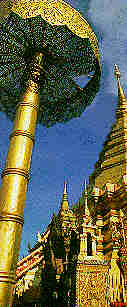|
Introduction
Dear Visitor,
I welcome you to this non-profit, educational page. Here you will read about different aspects of the history and culture of that part of our globe which is known variously as Bharatvarsha, Hindostan or India. My approach of looking at history is that of a rationalist and humanist. As my aim is to spread awareness about history and culture, you may freely download this page, print it, link it up from your site, or mirror it at any server. Enjoy the infotainment laid out for you at this site. I also look forward to your valuable suggestions and feedback. Happy viewing.
Author
Hindu History
Vedanta, Sankhya, Lokayata
Hindu Philosophical Schools
- by Shri Sudheer Birodkar
In the history of religious beliefs in ancient India, philosophical and speculative thought played a very important role. There existed various philosophical schools of which Vedanta, Sankhya and Lokayata could be considered as representative of the three major schools of thought.
Vedanta's Theism, Sankhya's Materialism and Lokayata's Rationalism
While the Vedanta school was theistic (believing in the existence of God), the Lokayata school was materialistic and atheistic (believing in the existence of only those things whose existence could be seen, heard, felt, tasted and smelt). The Sankhya school was compromise between the other two schools.
 A part of the gold-plated Pagoda in Thailand. The Buddhist philosophy of Jivadya i.e. respect for all living forms has deeply influenced the outlook of the peoples of the Far-east. Buddhism with its emphasis on universal love and non-violence, has had a sobering influence on a significant part of the human species.
A part of the gold-plated Pagoda in Thailand. The Buddhist philosophy of Jivadya i.e. respect for all living forms has deeply influenced the outlook of the peoples of the Far-east. Buddhism with its emphasis on universal love and non-violence, has had a sobering influence on a significant part of the human species.
While these philosophical schools played all important role in influencing the development of Indian religions, these philosophical schools themselves did not evolve into separate religions. They could not so evolve as they were intellectual traditions without any mass following. The lack of mass following had a positive effect as it kept the spirit of quest alive and disallowed the emergence of rigid commitment to certain ideas which prevented them from taking on the form of religion. Philosophical schools whether theistic or materialist remained distinct from religions proper. We shall explain in brief the nature of these different philosophical traditions.
Author : Shri Sudheer Birodkar
|